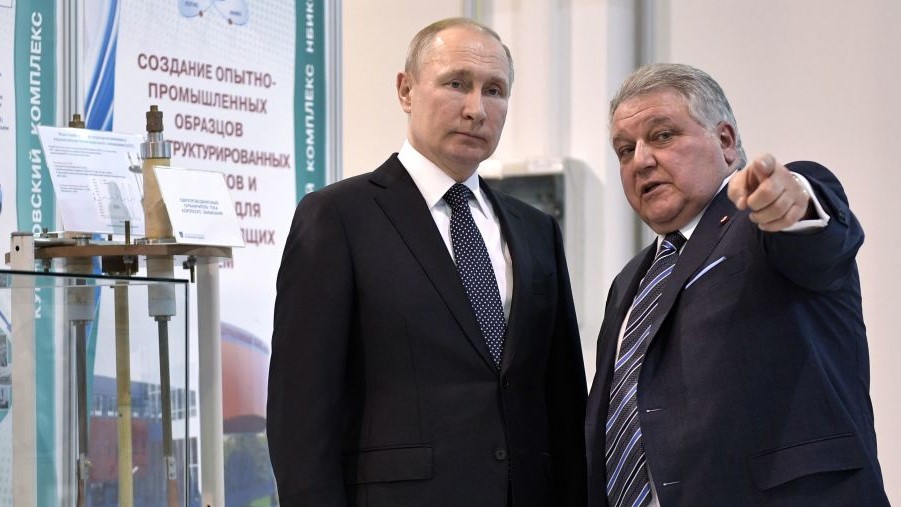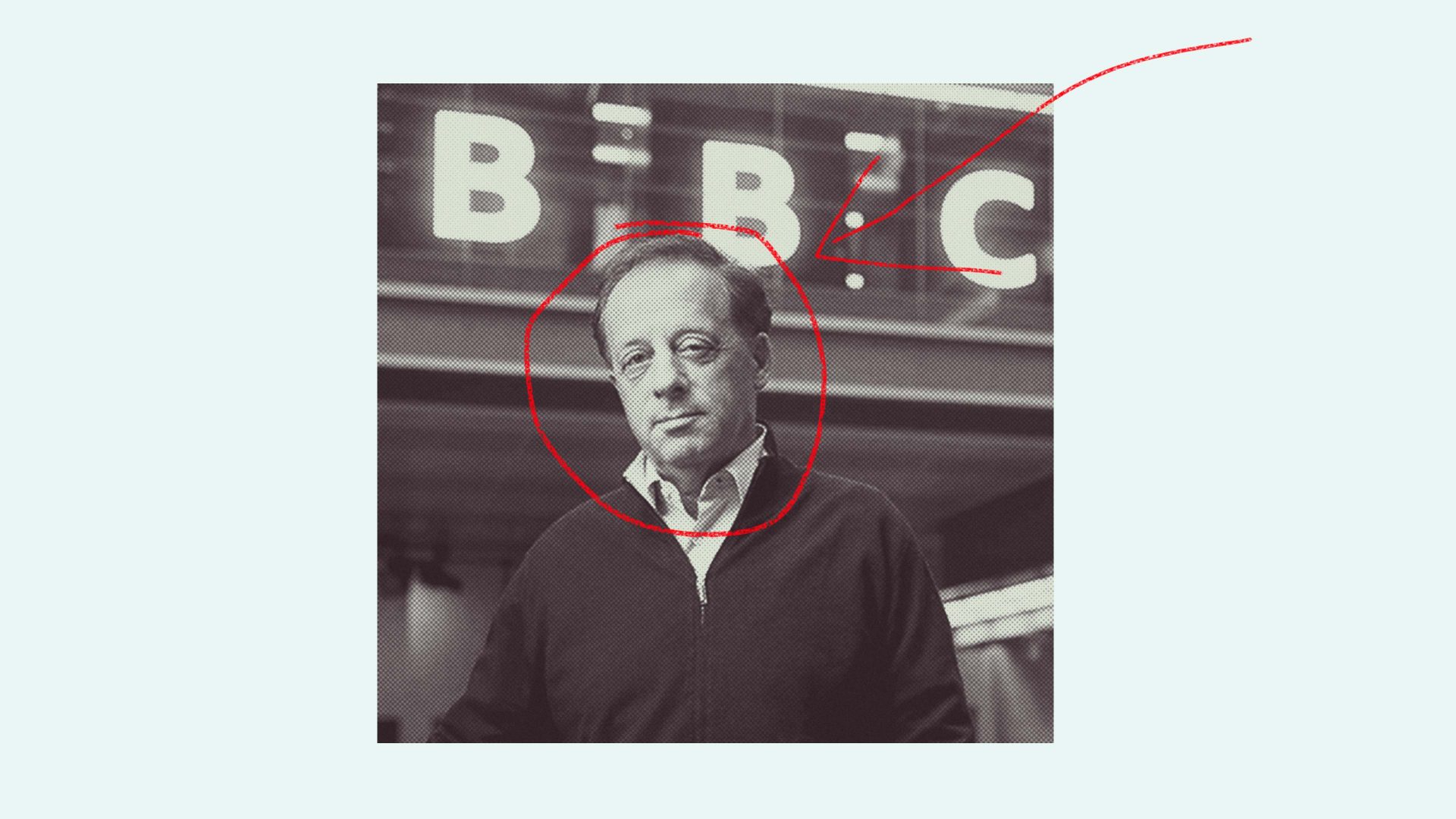I’d agree with John Sweeney (“It’s all come back to bite him”, TNE #340) that in-fighting is likely to be what ultimately rids us of Vladimir Putin. Tyranny depends on being propped up by cronies, and Putin has deeply upset enough of the many that he once had. Their revenge is potentially devastating.
The trouble is, another despot will come in his place. Russia seems too tired and depleted to be able to resist them.
Michelle Rene
John Sweeney thinks it’s OK to refer to the children of Russian oligarchs as “bastard spawn”. I don’t.
Conor O’Hagan
Brexit win?
Jonty Bloom’s interview with Guy Hands (“I thought Brexit was frankly nuts”, TNE #340) was a great article. His idea that Britain might now become less nasty as we seek to build bridges with Europe and the world makes me hopeful that maybe some good will come out of Brexit after all.
Patrick McDermott
Via Facebook
Civil reminder
Tobias Ellwood calls for a Brexit public inquiry (TNE #340) praising the value of such exercises in helping to avoid repeating bad policy in future. One of the most important reviews of government practice and policy was the Northcote-Trevelyan report of 1854. Commissioned largely in the wake of grave inefficiencies in supplying Britain’s armed services during the Crimean war, the report led to the creation of the UK’s professional civil service, a machine that would become the envy of the world.
It replaced a system of appointments based on cronyism, nepotism and outright bribery. Corruption and incompetence was rife, with little distinction between the government of the day and those who implemented policy. Family ties, political ties and old school ties were the order of the day.
Northcote-Trevelyan introduced competitive examinations and new, much higher standards in professional and personal behaviour. The objective was achieved of the British civil service having “core values of integrity, propriety, objectivity and appointment on merit, able to transfer its loyalty and expertise from one elected government to the next”.
Tobias Ellwood might remind some of his anti-civil service MP colleagues of the value of inquiry and the dangers of returning to a politicised civil service. Without Northcote-Trevelyan, the UK would have struggled to modernise. Public support for government policy would have been almost impossible to secure if implemented by an ill-qualified and gravy-train-minded civil service. A warning from history.
Martin Roche
Glasgow, Scotland
Sound & vision
More important than Ukraine’s history in Eurovision (“Nul points to mediocrity”, TNE #340) is the role of the contest as a uniting force. Firstly in postwar Europe, then with the addition of Spain and Portugal, both dictatorships at the time, then Greece as it emerged from the military junta. And on to the 1990s – perestroika, the fall of the Berlin Wall and 10 new countries joining.
Eurovision is Europe making sense of itself. What can we do together? We can sing!
Liz Read
Via Facebook
Trump card
Re: Mitch Benn’s “Voter ID didn’t help the Conservatives, so let’s just raise the voting age to 70”. Next they will stipulate that the only acceptable valid proof of ID is a Conservative Party membership card.
Lynsey Lancaster
Via Facebook
Thought crime
The arrest of anti-monarchy protesters before they had committed any crime (“The bravery of dissent”, Everyday Philosophy, TNE #340) seems to illustrate the introduction of thought police into this country. 1984 comes to mind.
However, for those of us who have read Minority Report, or seen the film based on the 1956 sci-fi novella about precrime, it would appear that not only George Orwell but also Philip K Dick was right.
Lyn Farnworth
Bere Regis, Dorset
The emphasis on service by the royals over the coronation weekend was a good and safe angle (“The last of his kind”, TNE #340). But coverage of the extravaganza has not said enough about how impossible it seems to detach the monarchy from the defence of the Protestant Christian faith and the Church of England. This is so undermining of any claim for the monarchy to be equally accepting of all subjects.
If the King changed this during his reign he would be breaking his coronation oath. So we need him to do some groundwork now, for the next coronation. New roles may need to be found for those helpful men in golden attire with their prompt cards.
Sophie Carabine
Chalford, Stroud
As a republican, it wasn’t great risking arrest or taking abuse from the more thuggish monarchists in Trafalgar Square on the day of the coronation, but not as dispiriting as Matthew D’Ancona’s condescension in TNE #339.
Organised republicans have been very clear about the settlement we seek: an elected head of state with a minimum of powers defined in a constitution, along with accountability to parliament in the event of a breach of those powers. In the unlikely event that Boris Johnson were to want and win such an office, that’s not a problem but it is democracy.
Nor do any of us see this as a standalone issue, it is part and parcel of a democratic renewal encompassing voting reform, bishops in the Lords, regional devolution and, yes, undoing concentrations of wealth and power in the tech industry and the rest of the economy.
The alternative, of course, is to leave the inheritance of wealth and power as the first principle of an unwritten constitution, dressed up with flummery about “enchantment”.
Michael Clegg
Own goal
In Alastair Campbell’s Diary (TNE #340), he wrote that the footballer Romelu Lukaku speaks eight languages: French, German, English, Spanish, Portuguese, Dutch, Flemish and Italian.
Dutch and Flemish are really one and the same language – it is pronounced differently, perhaps it can be compared to English as spoken in England and English as spoken in Wales or Scotland. Same language, different pronunciation.
Love reading TNE and have become a subscriber!
Anke van Lenteren
Stockholm, Sweden
Upon reading Alastair Campbell’s diary, I would suggest that Romelu Lukaku is a better linguist than footballer.
Arif Ellam
Shock, horror
Francis Beckett (Carousel, TNE #340) quotes from a plaque commemorating the late Jo Cox MP and comments “All true, of course….”, but unless this is a typo, Jo Cox was assassinated on June 16, 2016, which was the week before, not after, the referendum.
I well remember the shock as we drove through England from Scotland that day, en route for a motoring holiday in France, and the subsequent horror of waking up in our Dordogne hotel room and hearing the referendum result – merde!
Graeme Fraser
Dundee, Scotland
Extreme error
The argument (Letters, TNE #340) that PR must be suspect because it led to Hitler coming to power is dubious. Hitler did not organise a coalition, he effectively engineered a coup. The suggestion that PR could lead to extremists coming to power more easily is obviously erroneous – the opposite is the case.
With FPTP, much less than 50% of the votes can give a party an overall majority, as routinely happens in our general elections. The present government’s “landslide” in 2019 was achieved with 44% of the votes, and Tony Blair in 2005 gained a majority of 66 with only 35% of the vote. There is no good argument for FPTP, and ours is the only country in Europe, apart from the authoritarian Belarus, that uses it.
David Brandwood
Broadstone, Dorset
Focus on Why
I would like to endorse the letter from Chris Fitzpatrick (TNE #340) commending the work for peace and reconciliation being done by Jo Berry, whose father, Sir Anthony, was killed in the Brighton bombing. Jo often does this work in company with Patrick Magee, who was convicted of being her father’s killer. She is an extraordinary woman.
It is hard to imagine any person being able to forgive such an act and be able to turn her grief into a focus for good all over the world. For anyone wanting to hear more, I recommend her appearance as a guest in the podcast Focus On Why, hosted by Amy Rowlinson. The episode is #223, “The Gift of Conflict”.
Cyril Mannion
Swindon, Wiltshire
The excerpt from Rory Carroll’s book about the Brighton bomb recaptured the horror and mayhem it caused as well as leaving us to consider how much worse it could have been (“We only have to be lucky once”, TNE #339).
If Mrs Thatcher had been killed, the revulsion against the IRA would have heightened. There would have been pressure to “sort out” the IRA, and the debate about capital punishment would have been reignited.
I doubt whether the Good Friday Agreement would have come about had the Brighton bomb executed its full aim.
David Rimmer
Moving House
I was delighted to see a selection of Colin Jones’s marvellous photographs of the 1970s Islington Black House in TNE #336. However, could I correct the potentially misleading statement that Colin’s images “were meant to accompany an article by the journalist Peter Gillman [viz me] entitled ‘On the Edge of the Ghetto’”? That appears to imply that I had already written my article and that our themes somehow diverged. In fact, Colin and I worked together on the project throughout.
Our starting point was the moral panic caused by street crime and its racist portrayal in many newspapers. After being turned down elsewhere, we asked Brother Herman to allow us access to the young people in his care. He told us we could make our case to them and over the next six weeks we gradually won their trust, to the point where I could interview them about their life’s experiences and Colin could photograph them. What struck us was their bewilderment at arriving in London as children, often rejoining parents they hardly knew, and having to deal with everything from the weather to racism and discrimination.
Colin’s photographs depict a group searching for an identity and gradually becoming more confident about what they could achieve. Only a few had committed any muggings, but those young men did talk about what had driven them to that and the somewhat minor rewards it brought.
We produced our article together, matching Colin’s photographs with my interviews. The combined article, published in the Sunday Times Magazine in 1973, did cause some initial controversy. Later, Colin’s photographs came to be viewed as defining images of a generation that found its feet and helped to enrich London’s multiculturalism.
Colin died in October 2021. Five of the people he photographed, now mature adults with successful careers, attended his funeral.
Peter Gillman
London SE20



